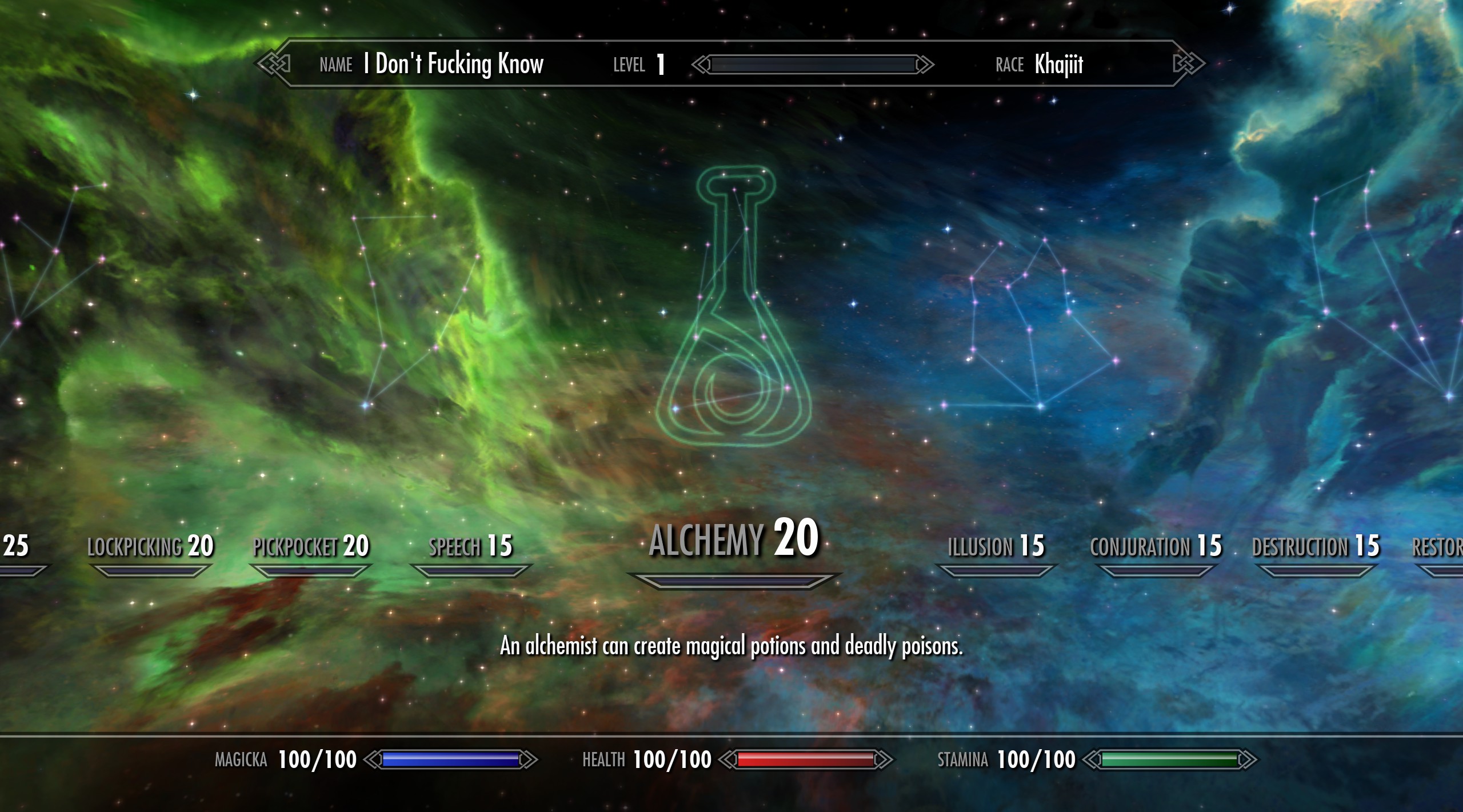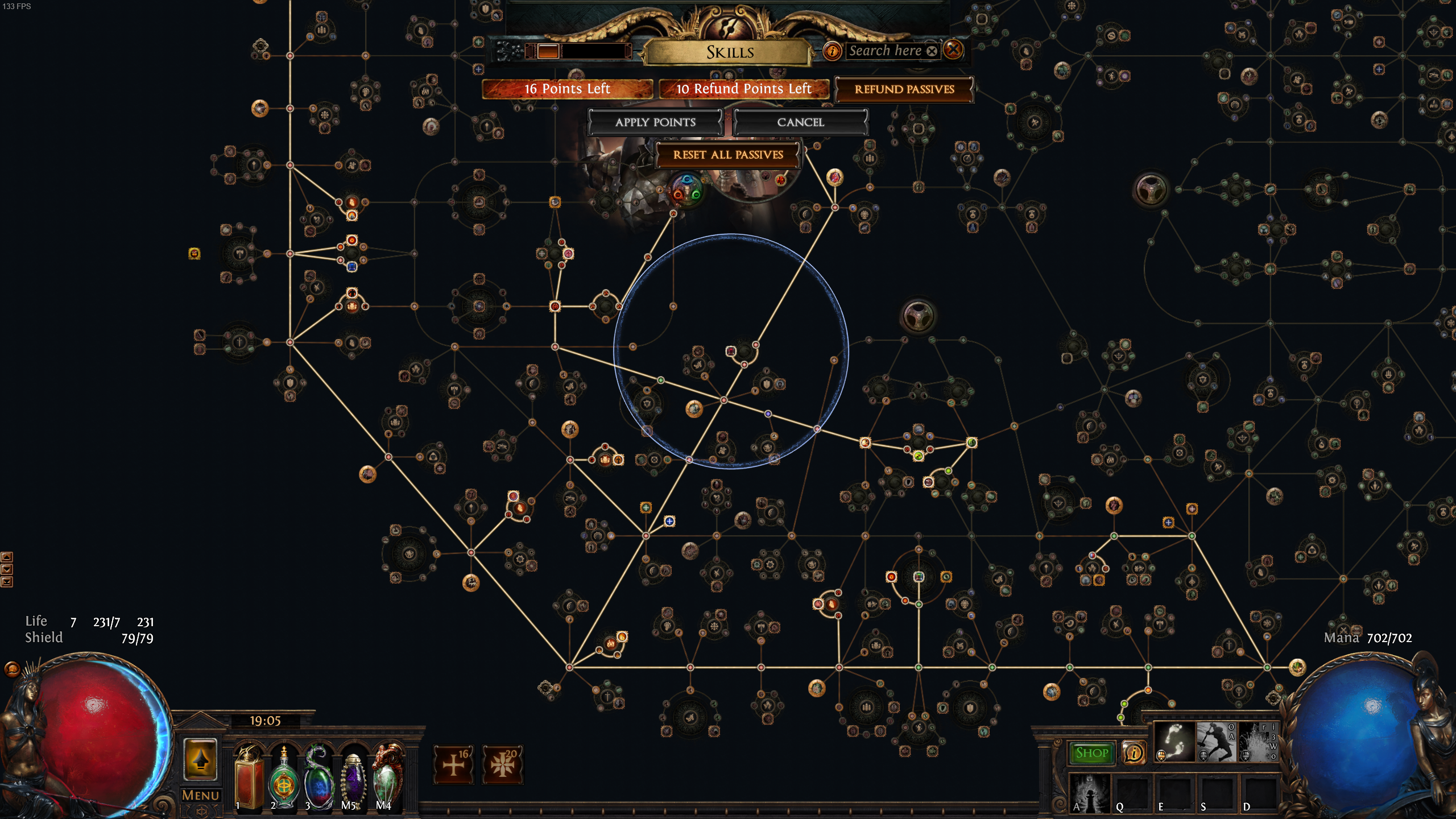Devblog #7 - Skill Tree : Theory
What can you expect to see in the skill tree ? How will it work ?
First let's start with our initial intentions with it.
Warning : This devblog contains a lot of text, I didn't have a lot to illustrate in this part but the next one will contains more visual material.
We're huge fans of games like Path of Exile, The Elder Scrolls V : Skyrim, Deux Ex : Human Revolution, and to keep it simple stupid, we just love games with skills trees (most of them at least).
All of these games have a different approach for the skill tree.
TES V has a categorized skill tree with a progression (you can unlock the most powerful skills only when spending points in the same category).

DE HR has an open tree, you are free to get any node of the tree in the order you want and each node can be upgraded once acquired.

POE is bit special, it just says 'you love skill trees ? well fuck simplicity here's your tree' and just throw you a tree with a whopping 1325 nodes (that of course you can extend with another system called 'cluster gems').

There's so much examples of skill trees in the wild (both good & bad), we have more than enough inspiration to take from.
So why did I took these games specifically ?
They illustrate the foundations of our current system.
#1 Progression :
That may sound dumb but the 'tree' in skill tree is here for a reason.
We think that a good skill tree needs to have a sense of progression to make sure the player doesn't fell like he's going nowhere.
If we take DE HR for example, the game offers you the ability to choose from any nodes at any given time.
While the liberty given by this system is great, I personally felt the progression in the tree less rewarding than when you unlock new nodes in a tree.
I think it's important in order to have this sensation of progression, to 'unlock' nodes and to see that we're making progress visually and that you're going forward.
#2 Liberty :
I know, I know, I just talked about Deus Ex HR with a negative statement but still.
The liberty offered with this system is incredible (not to mention the logic of including Jensen augments in the tree itself as a game system).
All of theses games are rather open, the player can chose in which direction he wants to go, where he wants to specialize and Skyrim is the perfect example for this.
The skill tree of Skyrim is split into several small trees that represents a particular aptitude (each of these skill trees themselves split into 'categories' which roughly represents stealth, magic & physical combat).
Not a single Skyrim playthrough is similar to another thanks to this system (among other of course).
You're free to explore each category and create a stealth fire mage with a two handed axe (in case of emergency of course).
#3 Variety :
A distinction must be made here because it can be hard to see a clear difference.
Liberty isn't necessarily bound to variety and Skyrim is once again the perfect example.
This game offers tons of nodes but do theses nodes blend with each other ? Not necessary.
If we take the example of the 'Smithing' tree, you'll only unlock nodes that allows you to create better armors and weapons.
And what about the 'Lockpicking' tree ? You see what I mean.
Ok so what about POE, I didn't talked about it yet.
Well, where Skyrim can be a bit rigid in his nodes effects, POE does the opposite. It creates nodes that can be mixed together in soooo many ways in order to create infinite build possibilities.
In addition to these 3 points, we added another layer : Discovery
This new principle will be covered more in depth in the next devblog, but if we need to sum it up in one sentence :
Keep the element of surprise.
Unfortunately, this devblog is already far too long and there's a pizza waiting for me in the oven so we'll continue next week.
Thank you for reading !